What’s the Buzz
The Bee Healthy Blog
What is a Mental Health Crisis?

Everyone experiences crises during their lifetime. A crisis is a limited-time event associated with an overwhelming emotional reaction. The provoking situation can be external, internal, or a combination of the two. What is a crisis for one person may not be a crisis for someone else. And a crisis now may not be a crisis in a different setting. Therefore, a crisis is a highly unstable situation with uncertain outcomes in which a person’s ability to cope is temporarily lacking. One of the most common types of crisis is a mental health crisis.
When someone has a mental health crisis, you often hear loved ones say they did not realize their friend or family member was going through a difficult time. That’s why it’s important to recognize the signs of a mental health crisis and prepare for it, so you can get help for yourself or someone you love. Please continue reading to learn more about what typically constitutes a mental health crisis, the difference between a mental health crisis and mental health emergency, and what you should do if you experience one.
What is the definition of a mental health crisis?
A mental health crisis is any situation in which a person is at risk of harming or hurting themselves or others through their feelings, actions, or behaviors. A variety of situations can provoke a mental health crisis, such as conflicts with loved ones, harassment or stress at work, or exposure to trauma or violence.
A mental health crisis is not always related to a mental illness. But people diagnosed with mental health disorders are at greater risk of experiencing a crisis situation. While individuals living with a mental health disorder face the same stressors as people who do not have a mental illness, they are often ill-equipped to deal with the stressors. Frequently, a mental health crisis is the first sign of a problem and leads to a subsequent diagnosis of mental illness.
It is important to understand that a mental health crisis cannot be turned off like a light switch. Seeking professional help is the safest way to address mental health disorders. Appropriate treatment for these disorders can help prevent crises in the future.
What is the difference between a mental health crisis and a mental health emergency?
A mental health crisis, while frustrating, is not a life-threatening situation. On the other hand, a mental health emergency is a life-threatening situation in which individuals are at immediate risk of hurting themselves or others. An emergency requires intervention to deescalate the situation. Examples of a mental health emergency include an attempt at suicide, severe disorientation, or being out of touch with reality. There is no sure way to tell if a person is experiencing a mental health emergency, but there are some signs you can look for (see below).
How to recognize a mental health crisis?
According to the National Alliance on Mental Health (NAMI), some of the signs and symptoms that indicate a person is experiencing a mental health crisis include:
- Inability to complete daily tasks, such as bathing and getting dressed.
- Talking about death or suicide attempts.
- Social withdrawal from friends and family.
- Impulsive or reckless behavior, aggression, agitation.
- Dramatic shifts in eating or sleeping patterns.
- Rapid mood swings.
- Losing touch with reality.
- Paranoia.
If a loved one displays these warning signs and symptoms, you should recognize that they may be struggling with a mental health crisis, support them, and encourage them to get help.
What are the warning signs of suicide?
The risk of suicide is a major concern in anyone with a mental illness or experiencing a mental health crisis. Any talk of suicide by a loved one should be taken seriously, and they should be encouraged to get help. The risk of suicide is greater in people who have previously attempted suicide. According to NAMI, the warning signs of suicidal ideation (thinking about or planning suicide) include:
- Preoccupation with death.
- Talking like it’s a final goodbye.
- Saying things like “It doesn’t matter anymore” or “You’re better off without me.”
- Stockpiling medications or buying a weapon.
- Giving away possessions.
- Tying up loose ends in terms of life planning.
- Making or changing a will.
- Mood swings between cheerfulness and despondence.
- Dramatic changes in behavior or personality.
- Increased alcohol or substance use.
- Social withdrawal from family and friends.
- History of suicide attempts or having friends or family who have attempted suicide.
What are the different types of crisis in mental health?
There are various types of mental health crises that can be provoked by a number of different life events and situations.
Maturational crisis
This is a type of mental health crisis that occurs during a transitional period in life, such as a young child starting school, an adolescent entering a sexual relationship, a young adult getting married, a middle-aged person dealing with teenagers, or an older adult confronting failing health or the death of a spouse.
Situational crisis
A situational mental health crisis revolves around grief, usually from the loss of an established situation that threatens a person physically, socially, or psychologically. This type of mental health crisis can be brought on by academic failure, loss of employment, divorce, the birth of a child with healthcare issues, death of a loved one, or serious injury.
Adventitious crisis
This is a crisis provoked by a rare, unexpected disaster such as a flood, fire, earthquake, pandemic like Covid-19, airplane crash, riot, war, an act of terrorism, violent assault, or rape. Because many such events affect a large number of people or entire communities, the mental health crisis may be overlooked in an individual. It can also be difficult to access mental health professionals at such a time because they are unable to respond quickly to so many people.
Sociocultural crisis
This is a mental health crisis that occurs due to a person’s inability to function within and conform to the social structure of their community. It can involve discriminatory practices based on class distinction or sexual orientation.
How to handle a mental health crisis in a loved one?
A mental health crisis is difficult to predict because it can occur suddenly without warning signs. A crisis can occur even if a person has been engaging with mental health professionals to treat a mental health condition. It can develop when there is a crisis prevention plan in place. Sometimes certain behaviors indicate an impending crisis. Being prepared in advance for a mental health crisis situation can result in a favorable outcome. Here’s what you should do when a mental health crisis occurs or is suspected in a loved one:
- Know who to call for crisis intervention. If the person is in immediate danger of hurting themself or others, call 911 and let them know you are with someone experiencing a mental health crisis. The National Suicide Prevention Lifeline operates 24 hours a day, 7 days a week, at 1-800-273-TALK (8255). If there is no immediate danger, reach out to the person’s mental health professional if they have one. You can also access the crisis services at the nearest emergency room, your local mental health center, or other community resources and programs.
- Learn techniques to handle the situation. Specific techniques such as speaking in a calm voice, listening carefully, avoiding the usual verbal and emotional triggers that affect the person in crisis, avoiding judgmental comments, and moving slowly can help de-escalate the situation. Knowing things that have helped in the past can also help to stabilize the person’s behavior. Removing weapons, medications, and other items that can cause harm is also important.
- Identify people who can help. Don’t try to handle a mental health crisis alone. Make a list of friends and family members available to support a person experiencing a mental health crisis. Your list should also include the person’s doctors, psychiatrists, therapists, and mental health service centers.
- Compile a list of diagnoses and medications. Having a list of the person’s medical conditions and medications can help emergency personnel provide medical services quickly and safely. This list should include any history of alcohol or substance abuse that you know of as well as any history of previous mental health crises and/or suicide attempts.
How to make a safety plan for myself?
You have already taken the first step towards successfully managing a mental health crisis in yourself by learning about the warning signs and symptoms that can indicate a crisis may be developing.
As a next step, you can work on learning some coping strategies that can help you take your mind off your problems without enlisting the help of others, for example, relaxation techniques or physical exercise.
A third step is to access social settings that provide a distraction from any event that can provoke a mental health crisis. You should also have a list of people on hand whom you can ask for help.
If you are at risk of a mental health crisis or emergency, make your environment safe by removing any items that can be used to cause harm. Lastly, have a list of professionals on hand, such as an emergency contact and therapist whom you can contact during a mental health crisis.
References:
1. https://www.nami.org/About-Mental-Illness/Warning-Signs-and-Symptoms


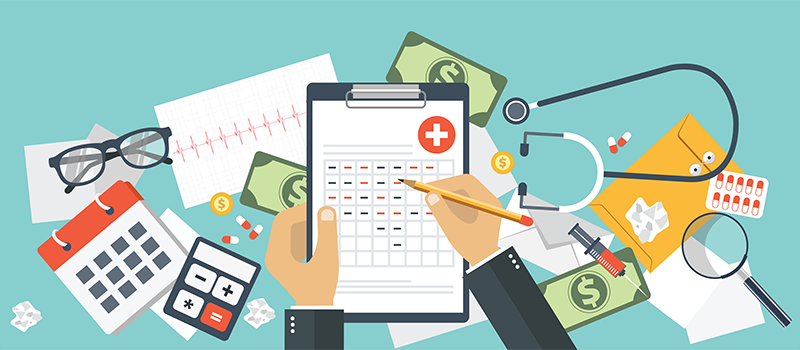
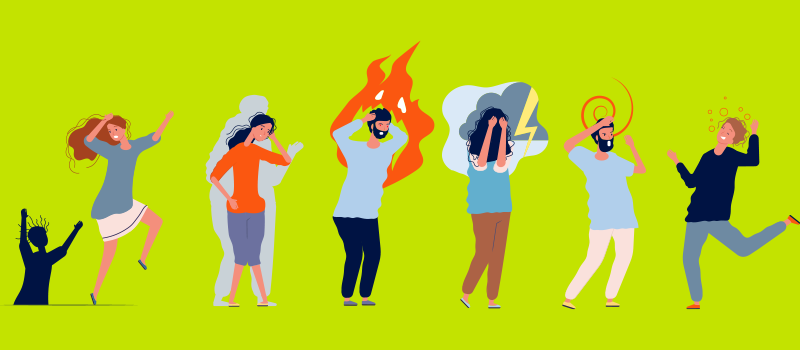

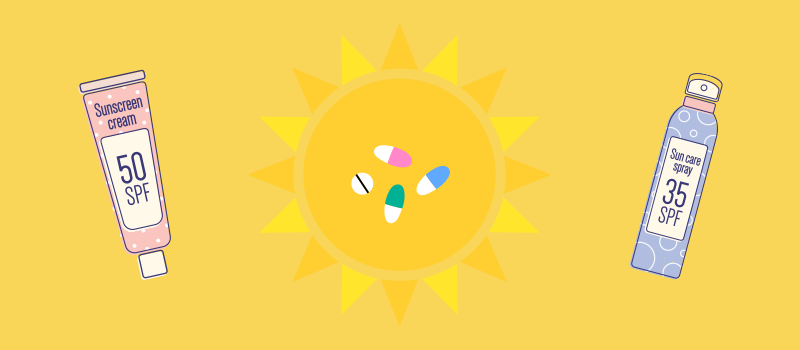
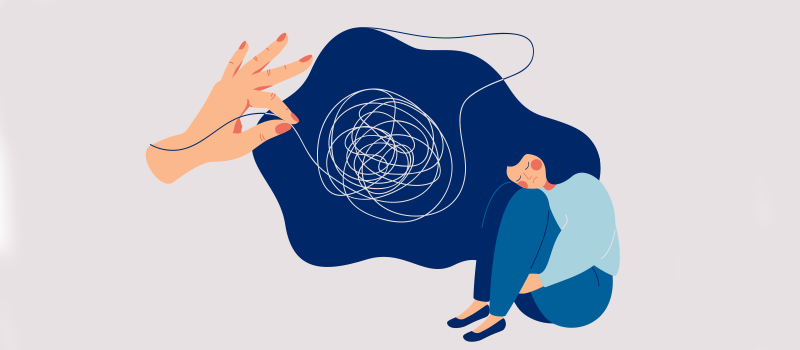
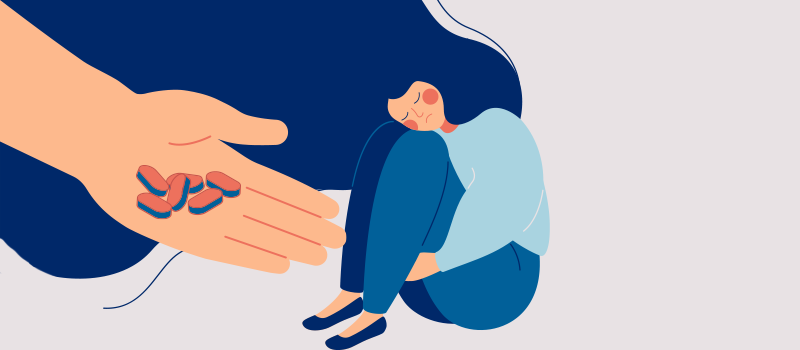



SOCIAL